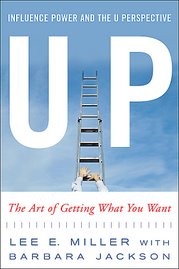
Can cosmetic surgery get you that raise you're looking for?
Maybe, says a study coming out of the University of Texas.
Men and women "with below-average looks" suffer "a pay penalty," while those with better-than-average looks receive "a pay premium," according to a University of Texas study. After considering other variables, such as education and experience, the study found someone with below-average looks earned 9 percent less, and a better-than-average looking person earned 5 percent more than an individual with average looks.
Gordon Patzer, a professor at Roosevelt University who has studied the "physical attractiveness phenomenon" for more than 30 years and is the author of "Looks: Why They Matter More Than You Ever Imagined," says "better-looking people not only earn more, they are also more likely to be hired and to be promoted."
More and more people seem to be acting on their belief improving their appearance will boost their careers. What many of them are doing goes well beyond just dressing for success. Since 2000, there has been a 27 percent increase in surgical and non-surgical cosmetic procedures, with a large portion of that increase attributable to men. And, according to a 2007 survey by the American Academy of Facial Plastic and Reconstructive Surgery, two-thirds of the men and women surveyed gave as their primary reason for seeking cosmetic surgery "remaining competitive in the workplace."
Daniel Brock, a studio engineer with a recording studio in Jersey City, opted for hair transplant surgery because he felt his premature hair loss was affecting his business. After a successful procedure, he found he was better able to relate to the younger musicians who are the mainstay of his business. He said he not only attracted a younger clientele, but, overall, his business has increased 35 percent since the surgery.
Much of the business benefit of cosmetic procedures appears to be psychological. The common refrain from the people I spoke with who had cosmetic surgery, was that they felt more confident and energetic after the procedure. Dr. Antonio Armani, the cosmetic surgeon who did Brock's hair transplant, said one of the reasons his patients often experience increased career success after surgery is "when they look better, they have more self-confidence."
That self-assurance enables them to perform better. Some experts think attitudinal transformation is more significant than the effects of the actual physical changes in advancing an individual's career.
In addition to the psychological effect on the individual undergoing the surgery, Patzer notes, "People do, in fact, treat other people differently based on their physical attractiveness."
Individuals are more likely to believe what people who are better looking say, and are also more willing to help them. Consequently, being more attractive can result in someone being more productive, Patzer says.
Cosmetic surgery, however, is not a panacea for whatever ails someone's career. In addition to the medical risks associated with any surgery, undergoing cosmetic procedures can be expensive and does not guarantee career success. Moreover, when people are aware you have undergone cosmetic surgery, your career may not fully benefit from the so called "beauty premium."
Patzer suggests while we value good looks in people, "We don't expect them to have to put effort into it." When someone improves their appearance through cosmetic surgery, "others tend to discount the value of those improvements." Moreover, sometimes the results of the surgery are not what were initially hoped for.
Whether cosmetic surgery is a better career investment than a new wardrobe, a good haircut or additional training remains to be seen. History is replete with people of only average looks who have achieved great things. Notably absent from the list of Nobel Prize winners and the Fortune list of the world's richest people are any supermodels.
A veteran human resources executive, Lee E. Miller is the author of "UP: Influence Power and the U Perspective -- The Art of Getting What You Want," and the co-founder of YourCareerDoctors.com, a Website devoted to career success. Mail questions to Lee@YourCareerDoctors.com.


No comments:
Post a Comment